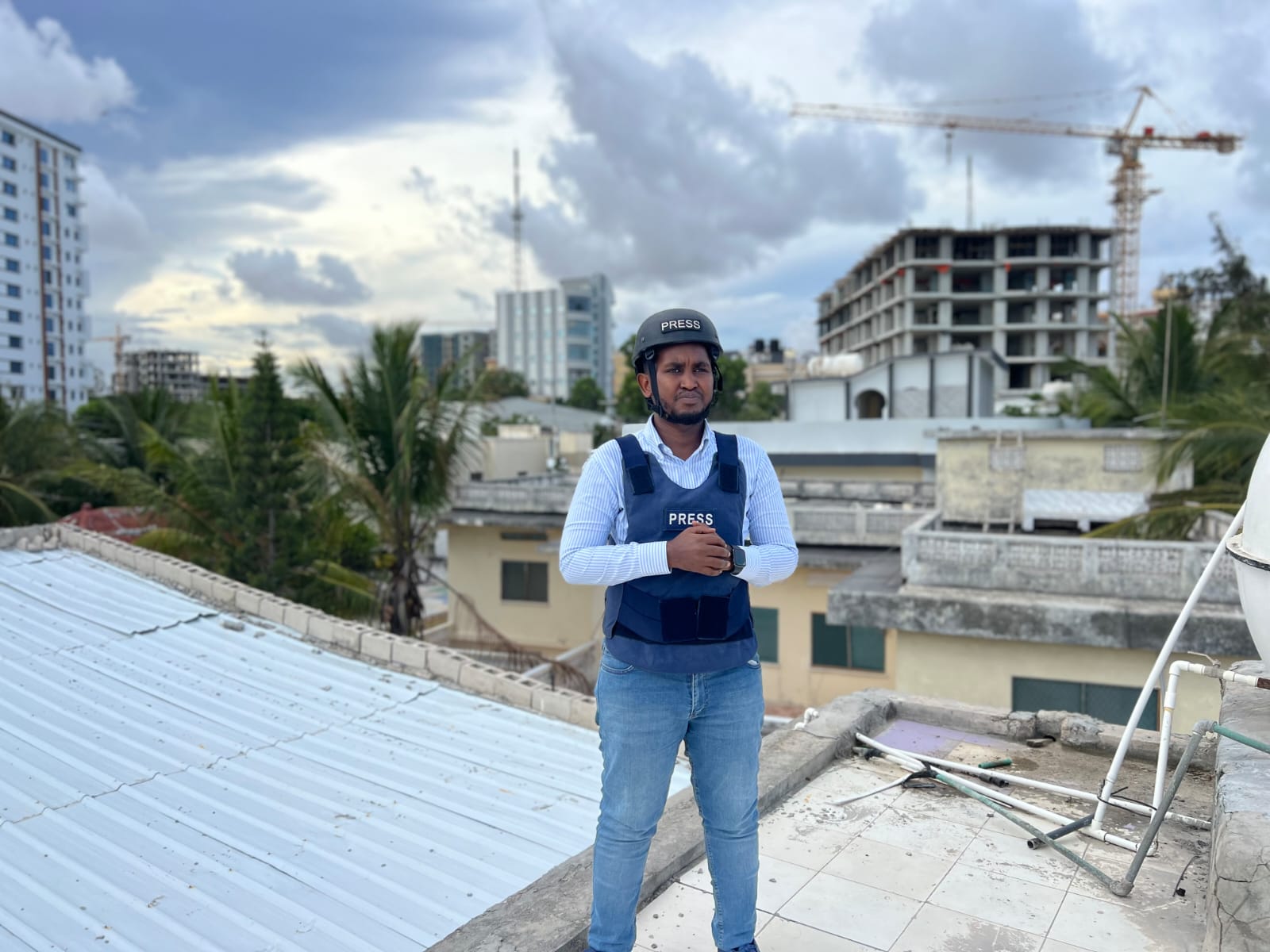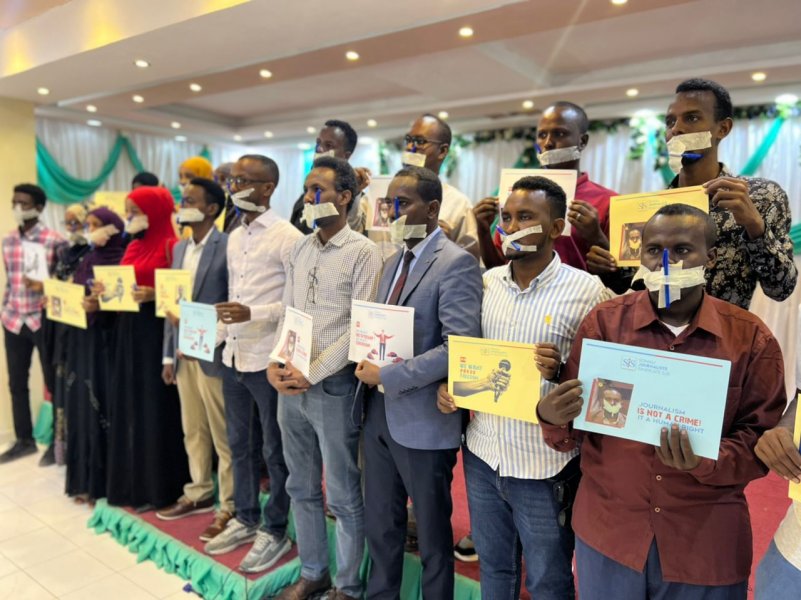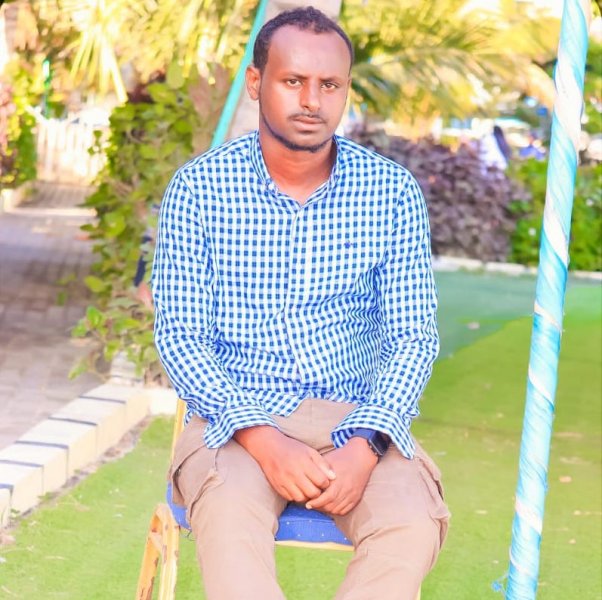
Somali journalists facing grave threats seek refuge abroad
|
11 August 2023 02:10

NAIROBI, Kenya (HORN OBSERVER / KAAB TV) –


In a distressing reality, Somalia maintains its ominous distinction as the most perilous African territory for journalists, standing atop the list of nations where assailants of journalists often evade accountability with complete impunity.
While Al-Shabaab was traditionally attributed as the primary assailant, recent revelations suggest that the country’s own National Intelligence and Security Agency (NISA), comprised largely of former members of the aforementioned extremist group, is now implicated in assaults against journalists.
Yusuf Abdi Shire, a seasoned editor with prominent media outlets including RTN television, SBC TV, and Dalsan TV, now finds himself in self-imposed exile due to a barrage of threats.
"I faced death threats related to my work. Al-Shabaab called me to go to their secret court as they threatened to kill me,” he divulged.
Yusuf’s narrative mirrors the harrowing daily realities in Mogadishu, the capital, aptly dubbed by its residents as the "city of death.”
On October 29 of the previous year, Yusuf narrowly escaped death when a dual car bombing devastated a bustling intersection in Mogadishu’s Soobe area, claiming two lives, including that of renowned journalist Mohamed Isse Koonaa.
Reflecting on the incident, Yusuf recollected, "I left a function at Jazeera Hotel. I was heading back to the office when the double suicide car bombings went off. I was lucky to survive within seconds after I left the area. Had I been with Mohamed Isse Koonaa I would not have been talking to you today.”
Although the number of journalists killed in Somalia witnessed a decline, arbitrary detentions, assaults, and suspensions remained rampant across the nation. Both local and federal authorities persist in their unchecked power, stifling Somali journalists with impunity whenever critical views are expressed, whether in Mogadishu, Kismayo, Hargeisa, or Garowe.

RED LINES FOR JOURNALISTS
The Somali Journalists Syndicate (SJS) underscores that red lines for coverage remain prevalent throughout the country. Notably, state security forces, including the national intelligence and police, along with clan militiamen, obstruct and target journalists reporting on bombing sites and security incidents.
Moreover, reporting on human rights abuses, particularly those perpetrated by state actors, remains perilous territory. Online expression also faces constraints, as state actors repeatedly hound journalists on social media for any critical personal posts.
Emerging from a minority group, Yusuf’s experience is emblematic of this harsh climate, as he faced calls from government officials and police officers displeased with his coverage of the court case involving the abduction-like arrest and trial of the SJS’s Secretary-General, Abdalle Mumin in October last year.
Mumin’s case was initiated following criticism of a restrictive directive issued by Deputy Minister of Information Abdirahman Yusuf Al-Adaala, a figure known for harassing and threatening journalists. In fact, Al-Adaala was identified as the foremost perpetrator of media freedom violations in Somalia last year.
"They were not happy with the way I was reporting the court case, so they called me and told me to stop portraying the court as abusive. And indeed, this was an abusive court with corrupt officials,” Yusuf recounted.
Throughout 2022, arbitrary detentions, threats, and information restrictions escalated alarmingly, while federal and local authorities escalated attacks on journalists covering the government-declared war between government forces and Al-Shabaab in specific regions, according to SJS reporting. Amid this backdrop, two prominent journalists were killed, ten were injured, 84 journalists were arrested, and seven media stations/offices were shuttered due to their critical reporting.
In response to these perils, an increasing number of journalists, including three female reporters, have fled Somalia for countries like Turkey and Kenya, the SJS reported last year. These individuals, seeking refuge from mounting pressure and threats, found the climate for press freedom untenable.
Compounding these challenges, the Ministry of Information’s directive instituted a sweeping restriction on media freedom, banning critical or neutral reporting on Al-Shabaab and requiring journalists to refer to the group as ‘kharijites’.
"This directive amplified threats to journalists’ safety and curtailed their ability to report on anti-armed group operations, thus encroaching upon their media freedoms. That is why many journalists have now decided to leave the country,” says Hanad Guled, SJS secretary of training.

Opting for a treacherous journey, Yusuf embarked on a perilous odyssey to traverse the Mexican border into the U.S., driven by the imperative to seek asylum. His decision, he says, was spurred by the specter of death threats and potential retribution stemming from his journalistic endeavors within Somalia. For him this was the safest recourse, as he couldn’t defy the orders of the powerful, corrupt officials in his country.
However, others weren’t as fortunate, like Abdirahman Ahmed Aden, a freelance journalist and filmmaker with the New Humanitarian.
Members of the National Intelligence apprehended him, subjecting him to physical assault as he was returning from work with his camera equipment on June 5 this year. After the arrest, Abdirahman found himself confined to a dim and unsanitary cell for nearly 11 hours, only securing his release after the intervention of a family member.
"Blindfolded and beaten me with their pistols, they declared me a foreign spy, asserting they were searching for me,” Abdirahman recounted.
Before his eventual release, NISA operatives ominously warned of ongoing surveillance and issued threats of death if he were to reveal any details regarding his detention or the conditions he witnessed during his incarceration. Although he returned home, the specter of danger confined him to his residence for several anxious weeks.
"It was a harrowing experience, with my family deeply concerned for my safety. Consequently, I made the difficult decision to leave the country out of fear that they might target me again,” he further elaborated.
Presently in Kenya, where he spent his formative years as a refugee, Abdirahman is plagued by uncertainty about his well-being.
"I find myself living under a form of house arrest,” he apprehensively expressed.
The hostile climate in Somalia continues to endanger journalists, prompting an alarming flight from their homeland and casting a shadow on the nation’s commitment to press freedom.
Leave a comment
- Popular
- Rated
- Commented
04/11/2021 - 11:05:02
28/05/2024 - 15:44:10
02/12/2021 - 11:34:53
01/03/2021 - 09:00:37
Opinions
18/05/2025 - 16:26:37
15/05/2025 - 20:16:04
02/04/2025 - 18:34:53
Politics
17/04/2025 - 01:58:17
13/04/2025 - 10:59:05
Terror Watch
18/05/2025 - 00:37:46
15/05/2025 - 00:59:16
Press Releases
21/05/2025 - 01:07:28
 0
0 




































Somali journalists facing grave threats seek refuge abroad
NAIROBI, Kenya (HORN OBSERVER / KAAB TV) –